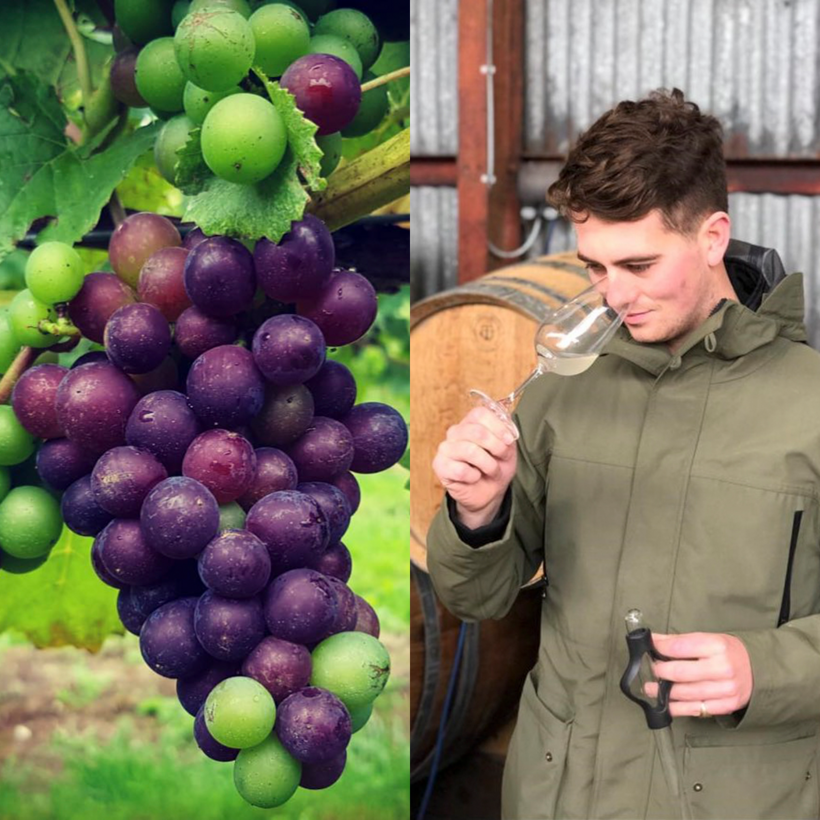Vineyards bring to mind temperate landscapes in Southern Europe, Northern California, and northern Argentina. The damp pastures of England are probably the last places you’d think of when discussing fine wine. But with climate change and rising temperatures in the U.K., England’s wine industry is rapidly expanding. Expert wine-makers from around the world are moving to Southern England to produce Pinot Noir and Chardonnay.
Tommy Grimshaw, 27, is at the forefront of this new wave. Since 2020, he’s been the head wine-maker of Langham Wine Estate, in Dorchester, which produces England’s most prestigious sparkling white wine. While Veuve Clicquot won the International Wine & Spirit Sparkling Wine Producer of the Year in 2019, Langham Wine Estate took the title in 2020, beating out 700 applicants from around the world.

The victory is well deserved. The wine is dry and crisp, and even an experienced palate wouldn’t be able to tell it apart from its French cousins. Michelin-starred restaurants around London, such as La Trompette and Noble Rot, have added the bottles, which cost between $50 and $110, to their menus. As of this year, Langham wines are available in Norway, Sweden, and Italy, and they have plans to expand into the U.S. market.
Grimshaw grew up in a small town in South Devon, and his foray into wine-making happened by chance, in 2013. “I was 17, and needed a summer job,” he says. “My aunt called a contact, who offered me a job labeling wine at a vineyard called Sandridge Barton, in Devon.”
That September, after failing the first year of his A levels, he dropped out of school. “I just didn’t really enjoy the education system that much,” Grimshaw says. “The wine-maker needed some help, so I stayed on and did my first harvest.”
Michelin-starred restaurants around London, such as La Trompette and Noble Rot, have added Tommy Grimshaw’s bottles to their menus.
After the harvest, Grimshaw and a group of friends went on a six-month backpacking trip around California (where his father is from), New Zealand, Hawaii, India, and Australia. Although they tasted wines in the places they visited, “it was nothing too serious.”
Money ran out, and Grimshaw returned home. He found that his parents had mortgaged their house and gone on a sailing trip, so he moved into a small cottage on Sandridge Barton’s vineyard. He envisioned it as a short-term job, but he ended up staying for six years. Slowly, wine-making became a passion. “It’s creative,” he says. “It’s not like brewing or making gin, where you can just try a new batch every week until you get it right.” With wine, “every year is different.”

In 2019, when an assistant-wine-maker position opened up at Langham, his favorite winery, Grimshaw left Devon. After only 10 months at Langham, the head wine-maker abruptly quit. Grimshaw was asked to step in. Now he’s the youngest head wine-maker in the U.K. Although the position is impressive, he reminds me that he’s been working in the industry for 10 years. “I’m a big fish in a small pond.”
Despite England’s rain-filled summer, Grimshaw is relaxed as his team gears up for the October harvest. “We’re on a very similar soil structure to the southern parts of Champagne,” he explains. “We’ve got a climate the Champagne area had about 30 or 40 years ago.” The team is experienced at fighting off threats such as mildew, and the yield looks promising.
After the harvest, the wine-makers will spend the winter pruning plants and labeling bottles while the grapes ferment naturally with wild yeast. They will make about 130 different still wines, taste them in May 2024, then blend some of them into the four sparkling wines that will eventually go on sale. As any wine connoisseur will tell you, blending is the most difficult part of the process. “You just want to balance and layer everything and make sure it tastes delicious,” he says. Next comes bottling with yeast and sugar, followed by a second fermentation. After another two years, the bottles will be ready.
Grimshaw is excited about the changing wine culture in England. “A lot of young people are coming in,” which is “exactly what the industry needs.” And despite its difficulties, he relishes his position. “We’ve hit the ground running,” he says. “And it’s been good fun ever since.”
Elena Clavarino is the Senior Editor at AIR MAIL


